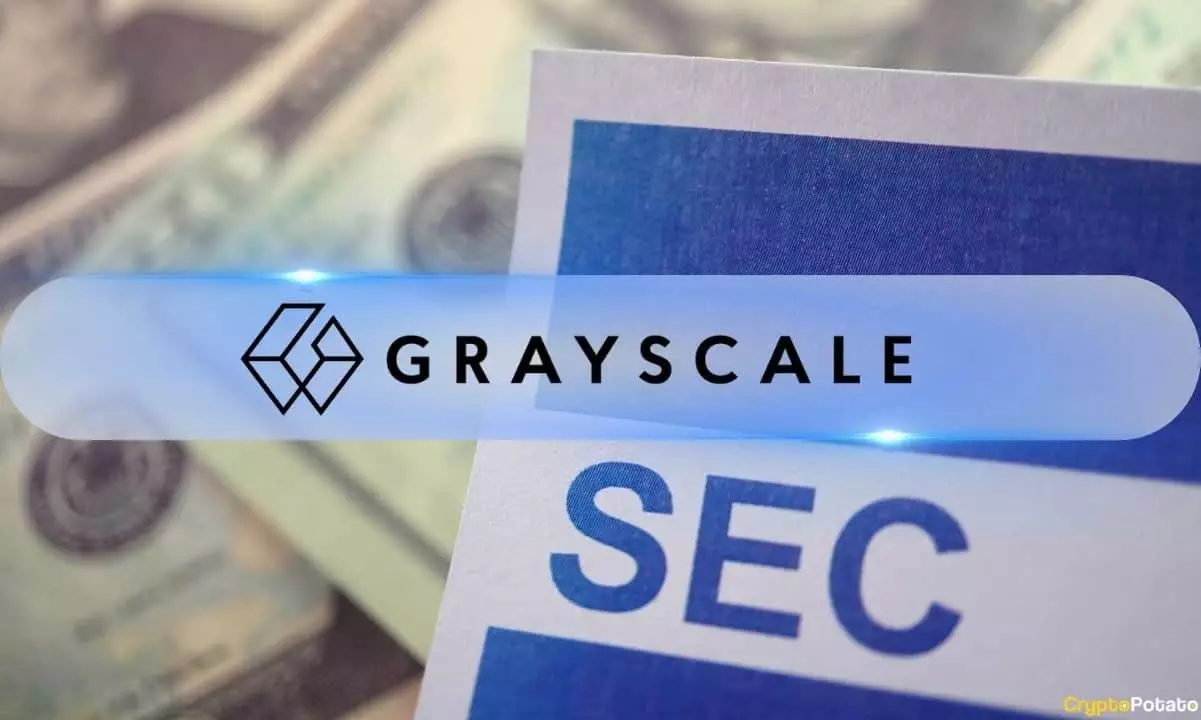In a noteworthy shift within the cryptocurrency investment sphere, Grayscale Investments has taken significant steps toward transforming its mixed-crypto fund into an exchange-traded fund (ETF). This strategic filing with the U.S. Securities and Exchange Commission (SEC) reflects an increasing trend among cryptocurrency firms aiming for regulatory approval to broaden their product offerings. As the market evolves, established players like Grayscale find themselves amidst a competitive environment that now includes applications for various cryptocurrency ETFs, including those focusing on Litecoin and XRP.
Grayscale’s Digital Large Cap Fund (GDLC), which currently operates over the counter with assets totaling approximately $524 million, is heavily weighted toward Bitcoin (BTC) at 75%, with Ethereum (ETH) comprising 19%. The fund also includes lesser-known cryptocurrencies such as Solana (SOL), Avalanche (AVAX), and XRP. If the SEC grants approval, Grayscale plans to list its newly converted ETF on the New York Stock Exchange (NYSE), enhancing its visibility and accessibility to investors. This move is built upon Grayscale’s recent successes in converting its Bitcoin (GBTC) and Ethereum (ETHE) products into ETFs earlier this year, demonstrating a burgeoning acceptance of cryptocurrency by regulatory bodies.
The endorsement by the NYSE through the filing of a 19b-4 form signals strong institutional support for this conversion. Such regulatory endorsement not only bodes well for Grayscale but could also pave the way for a more stable and legitimized cryptocurrency investment environment.
Grayscale’s ambitions are accompanied by the growing interest from other financial entities in launching their own cryptocurrency ETFs. Notably, firms like Bitwise and Canary Capital have also filed applications for spot XRP ETFs. This burgeoning interest underscores a recognition of XRP’s value despite the ongoing legal battles Ripple faces with the SEC. Ripple’s CEO, Brad Garlinghouse, has remained optimistic about the potential for an XRP ETF, reiterating confidence that the legal hurdles will eventually yield favorable regulatory outcomes.
Moreover, Canary Capital is making strides by introducing a planned spot Litecoin ETF. It aims to track Litecoin’s price through the CoinDesk Litecoin Price Index, leveraging Litecoin’s existing market capitalization, which stands at around $5.3 billion. This positioning places Litecoin as a significant asset in the cryptocurrency hierarchy, even hovering around the 26th-largest cryptocurrency by market cap. Canary Capital’s portrayal of Litecoin as a time-tested digital asset with substantial institutional appeal further highlights its importance within the evolving financial landscape.
The undertones of a shifting regulatory environment in the U.S. are growing clearer, as various firms express optimism about receiving regulatory nods for their cryptocurrencies. A spokesperson from Canary Capital noted “encouraging signs of a more flexible regulatory environment” that could favor the approval of these emerging funds. As various players in the ETF sector push for a clearer, more structured regulatory framework, the potential for a broader adoption of cryptocurrency ETFs appears promising.
As Grayscale and other financial firms seek to establish a foothold in the cryptocurrency ETF market, stakeholders will be keenly watching the SEC’s responses to these applications. The success of these efforts not only signifies a step forward for the involved companies but may also lay the groundwork for a new era of institutional cryptocurrency investment.

